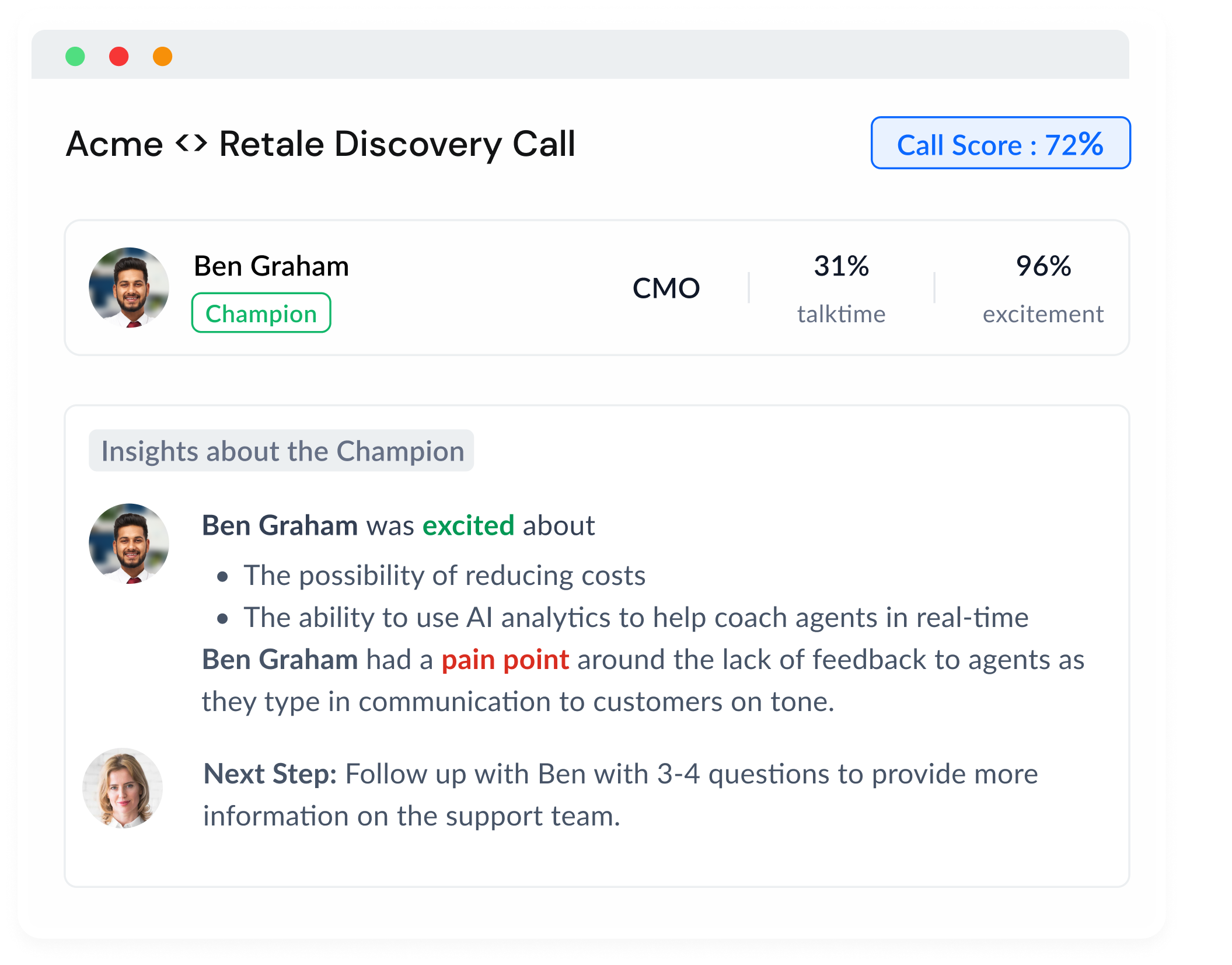Sales strategy - two words that can stir up excitement or trigger a groan, depending on how your last quarter went. On some days, it's your magic carpet ride to success, while on others, it's the labyrinth you just can't seem to navigate. But if perfected, a sales strategy is the magic wand that can turn the tides in your favor in the competitive business arena. It's the secret sauce that can make your sales numbers soar, help you conquer new markets, and turn your prospects into loyal customers.
In this comprehensive guide, we're going to take you on a thrilling journey through the twists and turns of sales strategies. Whether you're a seasoned sales wizard or a newcomer to the sales realm, this guide will equip you with the knowledge, tools, and insights you need to master your sales game.
So, are you ready to unleash the sales maestro within you? Let's dive in!
Sales Strategy Demystified: Unraveling the Path to Success
The ABCs of Sales Strategy: It's More Than Just Buzzwords!
Often thrown around in boardrooms, a sales strategy is more than just a fancy phrase. It's the master plan, the blueprint that guides your entire sales operation. It's the compass that points you to your sales goals, the binoculars that help you identify your target customers, and the roadmap that outlines the best way to reach them. From shaping your offerings to defining your sales process, it's the rudder that steers your sales ship - through calm waters, turbulent waves, and stormy seas alike.
The Four Pillars of a Winning Sales Strategy
Alright, we've talked about the what, now let's get to the how. Crafting the perfect sales strategy isn't an exact science, but there are a few steps you can take to put yourself on the right path.
Understanding Your Customer
First things first, you need to know who your customer is. This is more than just demographics; it's about understanding their needs, their challenges, their motivations, and their behaviors. This is where market research and customer interviews can be invaluable.
Identifying Unique Selling Proposition
Once you understand your customer, you need to figure out what makes your product or service stand out from the crowd. What can you offer that no one else can? This unique selling proposition (USP) should be at the heart of your sales strategy.
Crafting Sales Messaging and Positioning
Your sales messaging and positioning is how you communicate your USP to your customers. It's not just what you say, but how you say it. Your messaging should be clear, concise, and compelling, and it should speak directly to your customer's needs and desires.
Defining Success Metrics
Finally, you need to define what success looks like. These metrics will help you track your progress and adjust your strategy as needed. Common sales success metrics include revenue, number of deals closed, average deal size, and sales cycle length.
The Sales Strategy Hall of Fame: Putting Theory into Practice
Now that we've got the basics down, let's dive into the deep end. Let's explore some sales strategy all-stars and understand how they swing for the fences.
Solution Selling: The Superhero Approach to Sales
Solution selling is about zeroing in on your customer's problems and positioning your product or service as the ideal solution. It's like being a superhero, swooping in to save the day with your fantastic product or service.
Let's look at a practical application: Imagine you're a software company that offers project management tools. Businesses are grappling with remote work, struggling to keep teams coordinated and projects on track. You swoop in with your software, promising to make remote project management a breeze. You're not just selling software; you're selling a solution to their problem.
Pros and Cons
Solution selling can be incredibly powerful, as it directly addresses the customer's needs. The challenge? It requires a deep level of knowledge and expertise about both your customer's industry and your own product.
Value-Based Selling: Unveiling the Pot of Gold at the End of the Rainbow
Value-based selling isn't about listing out the features of your product or service. Instead, it's about demonstrating the value or benefits that your customers can derive from it. It's like showing your customer the pot of gold at the end of the rainbow, emphasizing the results they can achieve rather than just the tools to get there.
Let's consider an example: A gym doesn't just sell memberships; they sell a healthier lifestyle, increased confidence, and a sense of community. They're not just providing access to equipment; they're offering transformation, personal growth, and a pathway to achieving fitness goals.
Pros and Cons
On the plus side, value-based selling can be incredibly effective at differentiating your product in a crowded market. On the downside, it can be time-consuming and requires a deep understanding of your customer's needs and values.
Consultative Selling: Transforming Sales into a Heart-to-Heart Conversation
Consultative selling is all about building relationships and understanding your customer's needs on a deeper level. It's about nurturing trust, asking insightful questions, and offering solutions tailored to those needs.
For instance, financial consultants embody this approach. They don't just sell financial products; they take the time to understand a client's financial situation, their short-term and long-term goals, their risk tolerance, and more. Based on this understanding, they provide tailored advice and recommend the right products. It's a fine dance between empathy, active listening, and strategic guidance.
Pros and Cons
Consultative selling can build strong, long-term relationships and customer loyalty. However, it can be a longer sales process and requires a high level of expertise and excellent communication skills.
Social Selling: Join the Online Party
Social selling leverages the power of social media platforms to find, connect with, understand, and nurture potential customers. It's about being present where your customers are, engaging in meaningful conversations, and building relationships.
Fashion brands are masters of social selling. They use platforms like Instagram to showcase their products, engage with their audience, and build a community. They share behind-the-scenes glimpses, involve influencers, respond to comments, and create a sense of connection. It's not about pushy selling; it's about authentic engagement that naturally leads to sales.
Pros and Cons
Social selling can be effective at reaching and connecting with potential customers. However, it can be time-consuming and requires ongoing effort to share valuable content and engage with your network.
Account-Based Selling: Personalizing Your Sales Approach
Account-based selling is about recognizing that each account is unique and requires a personalized approach. It's about treating each account as a 'market of one,' tailoring your sales strategy to match their specific needs, structures, and decision-making processes.
A great example is tech companies selling to large enterprises. They understand that these businesses have complex structures, multiple decision-makers, and unique challenges. They tailor their pitch to address these specifics, demonstrating a deep understanding of the account and offering a customized solution.
Pros and Cons
While this approach can lead to larger deal sizes and long-term relationships, it requires significant resources and a detailed understanding of the client's business.
AI: Your Personal Sales Strategy Coach
Just when you thought we were done with the acronyms, we're bringing out the big guns: AI, or artificial intelligence. Just as GPS revolutionized navigation, AI is revolutionizing sales. With the power to analyze massive amounts of data in real-time, predict customer behavior, and even automate tasks, AI is like your personal sales assistant, always ready to lend a hand.
Let's explore some of the ways AI can supercharge your sales efforts:
Data Analysis and Insights
AI algorithms can analyze vast amounts of data in real-time, extracting valuable insights and patterns that humans may overlook. This enables sales teams to identify trends, customer preferences, and potential opportunities with greater accuracy and speed. For instance, Sybill uses AI to analyze every moment of your sales calls, identifying verbal and non-verbal behaviors that can give you an edge. It's like having a personal sales coach, whispering tips and tricks in your ear.
Predictive Analytics
By leveraging historical data and machine learning algorithms, AI can predict customer behavior, buying patterns, and even potential churn. This empowers sales professionals to proactively address customer needs, tailor their approach, and make data-driven decisions to maximize sales opportunities.
Sales Process Optimization
AI-powered tools can streamline and automate various aspects of the sales process, such as lead scoring, qualification, and follow-ups. This allows sales teams to focus their time and efforts on high-value activities, nurturing relationships, and closing deals.
Personalization at Scale
AI enables personalized experiences at scale by analyzing customer data and preferences. It can suggest personalized recommendations, tailor messaging, and anticipate customer needs, enhancing customer engagement and satisfaction. AI tools like as Sybill can provide personalized recommendations to help you improve your sales strategy. Whether it's tweaking your messaging, adjusting your approach, or identifying new opportunities, Sybill has you covered.
Sales Performance Tracking
AI-powered sales tools can monitor sales interactions, analyzing verbal and non-verbal cues to identify strengths and areas for improvement. This feedback helps sales professionals enhance their communication, negotiation skills, and overall performance.
In conclusion, AI is transforming sales strategies by providing invaluable insights, optimizing processes, and enhancing customer experiences. With the support of AI-powered tools like Sybill, sales professionals can unlock new levels of success, adapt to changing buyer behaviors, and drive revenue growth.
Remember, there's no one-size-fits-all approach in sales. It's about experimenting with different strategies, observing what works, and always being ready to adapt. Whether you're a seasoned sales veteran or a fresh-faced newbie, Sybill is here to be your guide, your coach, and your secret weapon.















.png)





